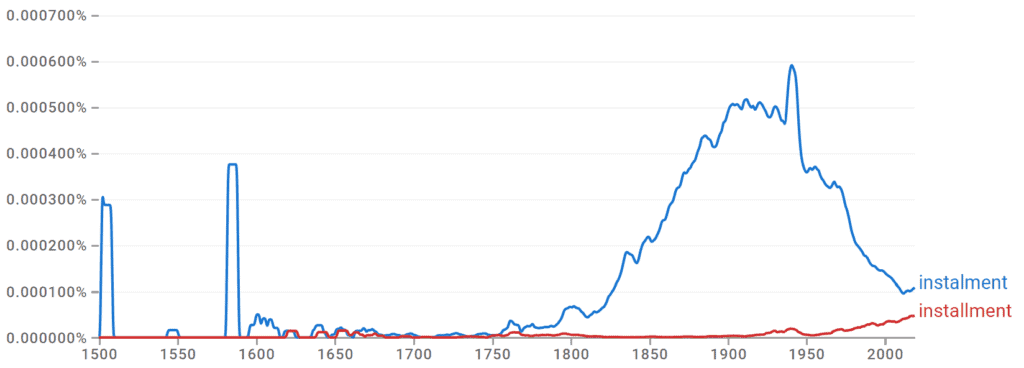Instalment and installment are the same words, the only difference being the spelling. The noun referring to something issued or paid at intervals is spelled installment in the U.S. Outside the U.S., it’s spelled with one l—instalment.
Such variations between British and American English might seem small, but they can greatly impact comprehension and clarity, especially in formal contexts. Knowing these differences can help ensure your writing is not only accurate but also tailored to your target audience. Dive deeper into this article, and you’ll uncover a trove of examples and usage insights that’ll have you mastering these nuances in no time.
What’s the Difference Between Instalment and Installment?

The only difference between instalment and installment is the spelling. Essentially, the two spellings convey the same meanings, with the difference lying in regional preferences.
In simple terms, both refer to a portion of something, typically money, that’s scheduled to be paid or received over a set period.
- I set up an app to make installment payments for my vacation, but it did come with a tiny interest fee.
The term isn’t just about payments, though. It can also describe serial releases, such as books or shows.
- Edgar Allan Poe’s earliest works were first released in monthly installments in a literary journal.
Lastly, a less common but still valid usage is the act of officially placing someone in a position or office.
- After the election, the new president’s installment as club secretary was celebrated in a smaller but more intimate gathering.
Origins of the Word ‘Installment’
“Installment” or “instalment”? Believe it or not, these two spellings have coexisted for centuries, dating back to the 16th century. The distinct spelling preferences between the U.S. and Britain became clearer by the 18th century, but it wasn’t always so delineated.
The term “instalment” found its roots in the 1580s, indicating the “induction into an office.” Its inspiration stemmed from the Old French word “estal,” translating to “a fixed position.” It was only much later, in 1776, that the term started to be associated with “a partial payment.” Yet, an earlier form, suggesting “an arrangement for payment,” had been on record since the 1730s.
Both variations danced around in usage across the countries. However, “instalment” maintained a consistent popularity in Britain, standing as the preferred choice for many.

On the other side of the pond, “installment” found its footing in America. In fact, even our northern neighbors in Canada lean toward “installment,” making it a distinct feature of North American English.

Let’s Review
Instalment and installment are essentially twins, just with a little difference in their spelling attire. Tracing back to the 16th century, both versions of the word have been coexisting gracefully. While instalment (with a single l) finds its loyal fans mainly in the U.K., installment is the go-to choice in the U.S. and the broader North American region.
Delving into its meanings, the term originally denoted induction into office. However, with time, its horizons expanded. Today, it also captures the essence of staggered payments or the serial release of content, be it in literature or media.
You might also be interested in: Installation vs. installment.
